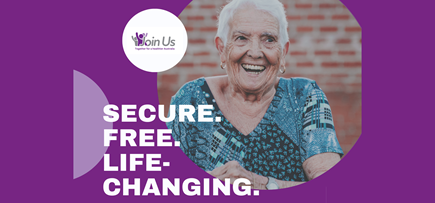Get involved in research
Survivors of stroke, families, carers and the community are central to stroke research. You can:
- help direct research as part of the project team
- share your views and experience
- test new treatments to find out what works.
Getting involved in research may sometimes also allow you to access emerging therapy you wouldn’t otherwise be able to get. Involvement may also be part of your stroke recovery plan.
Stroke Foundation has an e-learning module to help you work well with stroke researchers.
-

Join Us' research register
Stroke Foundation is proud to partner with Join Us. Sign up to be notified of health research that matches your interests, and help us continue our work.
Sign up -

Browse projects recruiting
Browse our list to find projects relevant to you, in your area or online.
Browse research projects
Duty of care and responsibility
- Stroke Foundation endeavours to ensure that all engagement through our research program is undertaken ethically and in line with our guiding principles. Reasonable checks are undertaken to ensure promoted projects have appropriate approval from a recognised body.
- Stroke Foundation is not responsible for externally administered research and is not liable for any claims concerning negligence, harm or oversight that might arise during the course of the research.
- Consent to take part and any questions or concerns regarding the research should be initially directed to the research team contacts provided.
- Stroke Foundation retains the right to remove listings/postings that do not meet the requisite criteria, and/or if complaints are received concerning the research project.
Do you have a research project? Request participants
